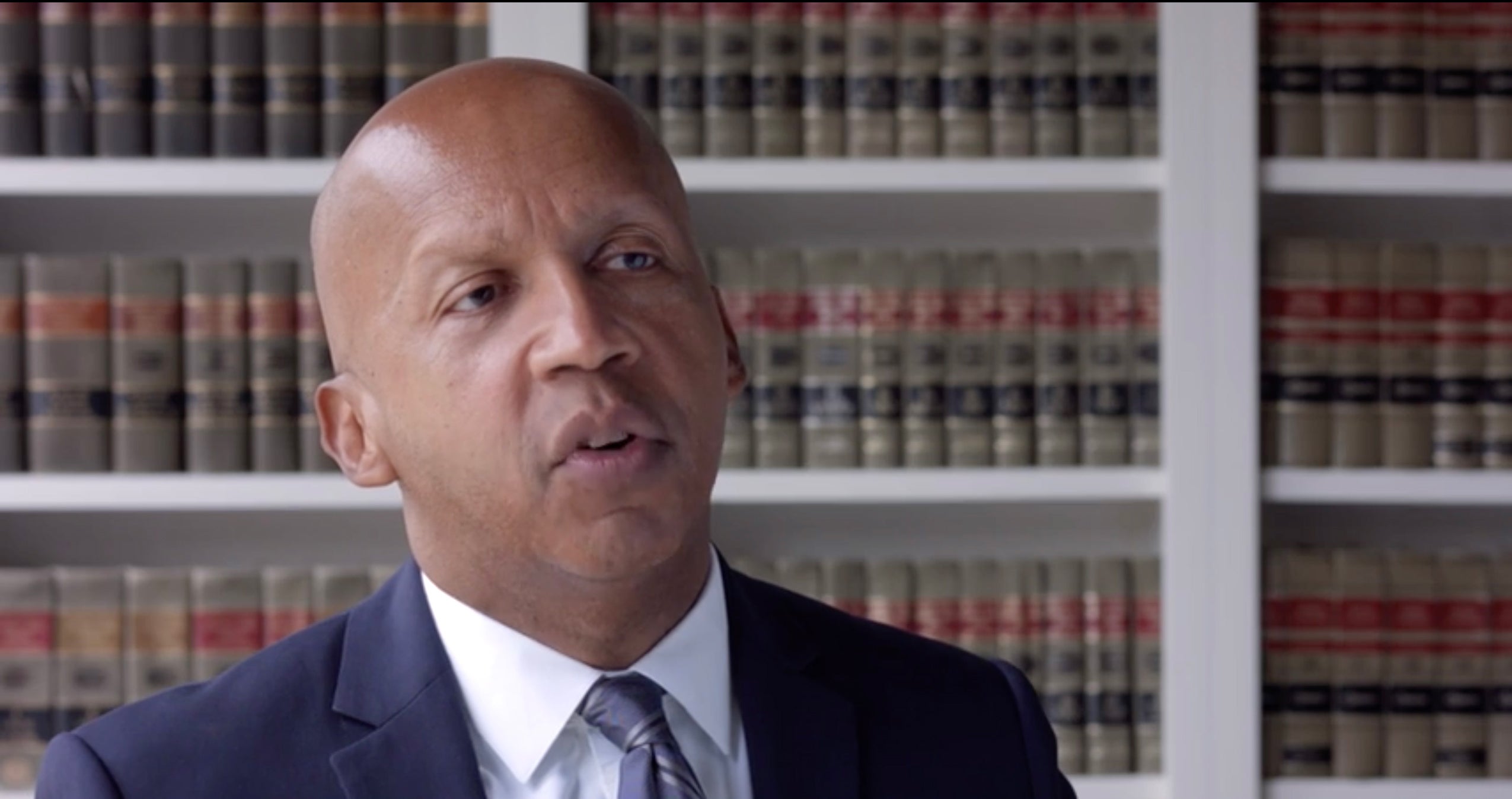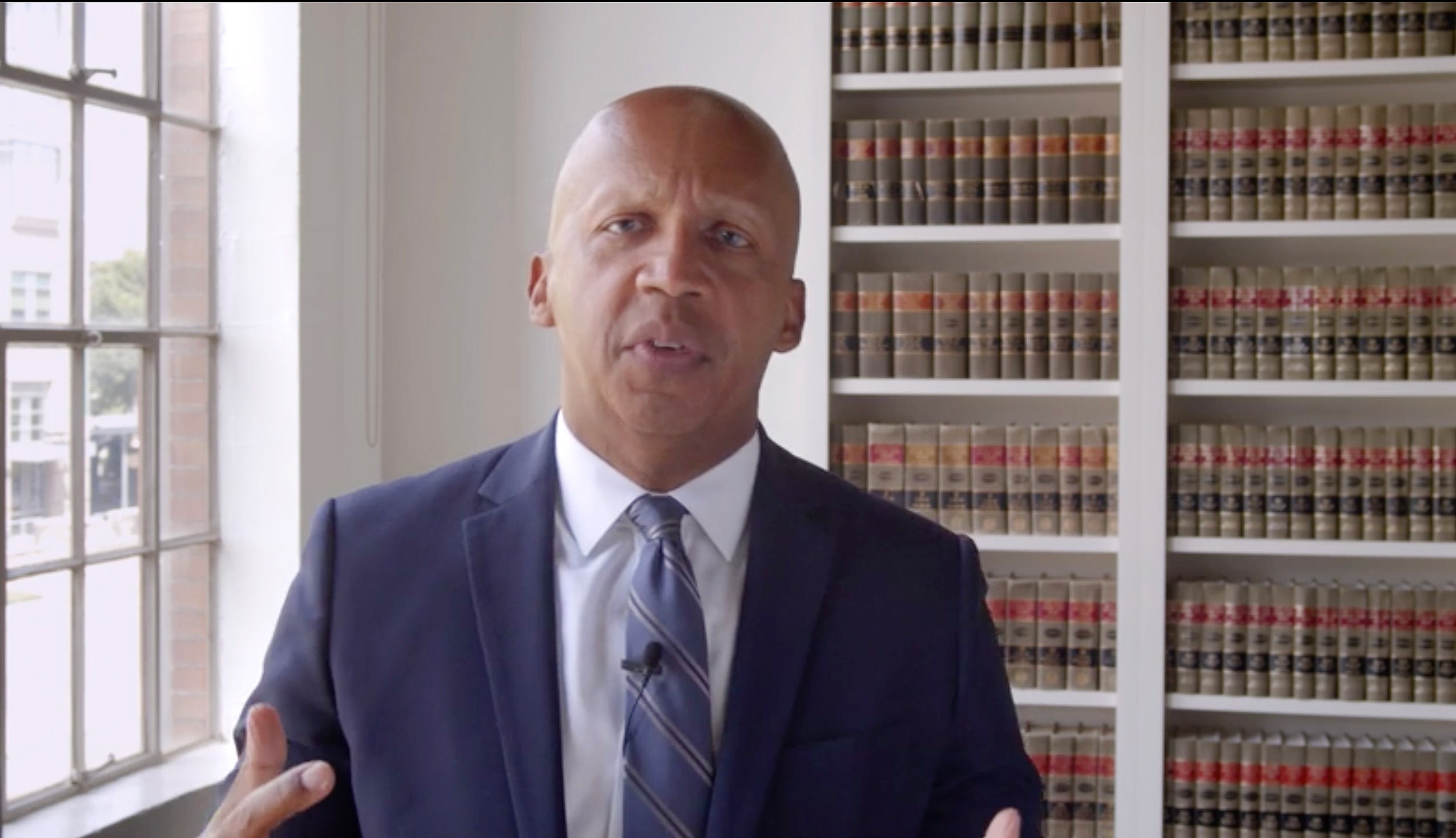Toward the close of his Harvard Law School commencement address, Bryan Stevenson J.D./M.P.P. ’85 let the graduates in on a secret: He did not attend his own HLS graduation in 1985. “I don’t have a good excuse, like a pandemic. I was just kind of anxious to get to work, things were busy.”
Stevenson’s work as a lawyer and social activist has made him an inspirational figure to many. He is the founder of the Equal Justice Initiative, the nonprofit organization behind the recently opened National Memorial for Peace and Justice in Alabama, which is dedicated to the victims of lynching in the United States. In a pre-recorded talk for HLS’ first virtual commencement ceremony on Thursday, he urged the graduates to jump into their work with the same zeal that he did—and to keep their ideals and their hopes intact.
The class, he said, had already mastered law; the next step is to pursue justice. “This pandemic has exposed the issues that we have in our society. Too many people are sick. Too many people are dying. So many people can’t get the health care they should be getting because of these problems. It’s the same with legal services and access to justice. Too many people can’t get the legal help they need … We have to find ways to create more equality, more opportunity, more justice.”

Bridging these gaps will require a commitment to “doing things sometimes not for money, but because it is what we are called to do,” Stevenson said. He outlined a four-point program for graduates to call on for bringing about real justice. They need, he said, to stay “proximate” to those they hope to represent. They need to fight back against the narratives that have created injustice. They need to stay hopeful and remember that “your hope is your superpower.” And finally, they have to be willing to do inconvenient and uncomfortable things.
Find a way to get proximate to the people who are marginalized, who are excluded.
Stevenson said that proximity can take many forms: For him it meant going to death row to represent inmates. “I learned that we have a criminal justice system that treats you better if you’re rich and guilty than if you’re poor and innocent. … I learned that each of us is more than the worst thing we’ve ever done.” While the graduates may not choose the same path, he urged them to “find a way to get proximate to the people in your neighborhoods, your communities, the places where you work, the places where you live—the people who are marginalized, who are excluded.”
He called on the graduates to change “the narratives that sustain inequality and make us indifferent to human suffering.” In particular he cited the “war on drugs” that began in the late ’70s and identified drug users as criminals rather than addicts with a medical problem. The result, he said, was that by 2001, one in three black male babies was expected to eventually go to prison. The other consequence was a nation divided by fear and anger.
But the roots of this inequality go back further, to the killing of American natives by European settlers and to the institution of slavery. “The true evil of American slavery was this narrative we created … that black people aren’t fully human.” Stevenson encountered this narrative himself as a lawyer—when a judge saw a well-dressed black man and presumed he was a defendant—and he saw it again in the recent Georgia killing of Ahmaud Arbery. “Two white men killed that young man on the street, and our system did not respond. We tried to justify that violence based on these narratives of racial difference.”
This is a strange time. It’s a difficult time. We can’t all be together. But I am persuaded that we shall overcome.
Finally, he urged the graduates to remain hopeful, and to risk uncomfortable situations. He recalled doing both at one trial, when the discriminatory treatment of his 14-year-old client led him to write a motion that the teenager instead be treated like a 75-year-old corporate executive. The language in that motion triggered a courtroom shouting match. But Stevenson’s defense of his client led an older black man, who worked as a court janitor, to appear uninvited at the trial to urge Stevenson to “keep his eyes on the prize.”
Stevenson emphasized that each of the graduates has the ability to make the future more just. “We will get to a different place,” he said. “This is a strange time. It’s a difficult time. We can’t all be together. But I am persuaded that we shall overcome.”
